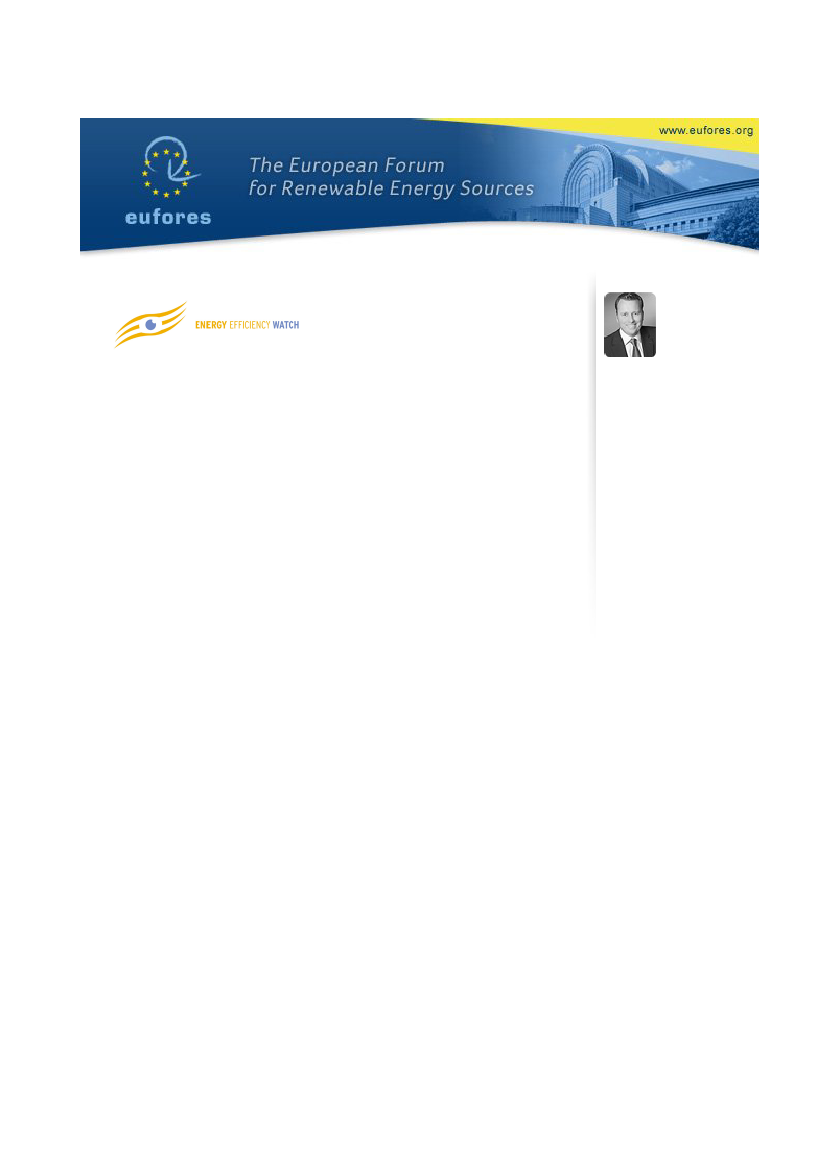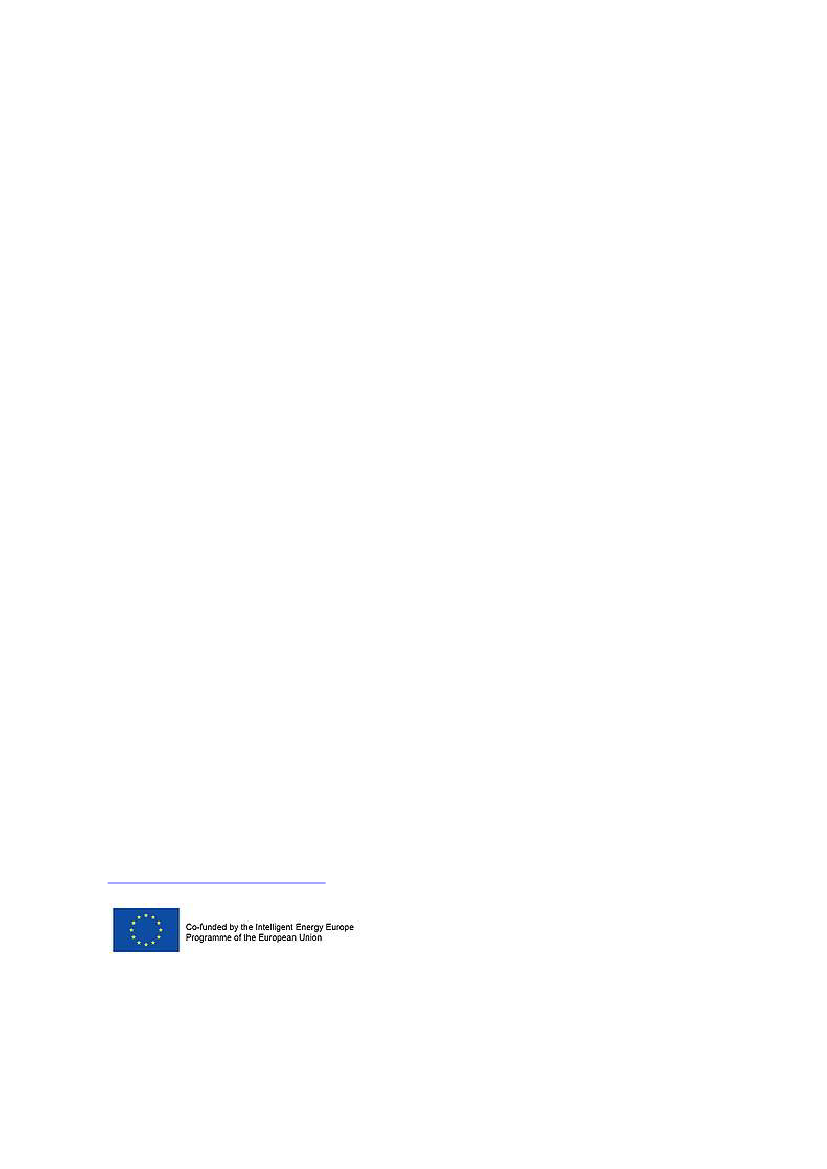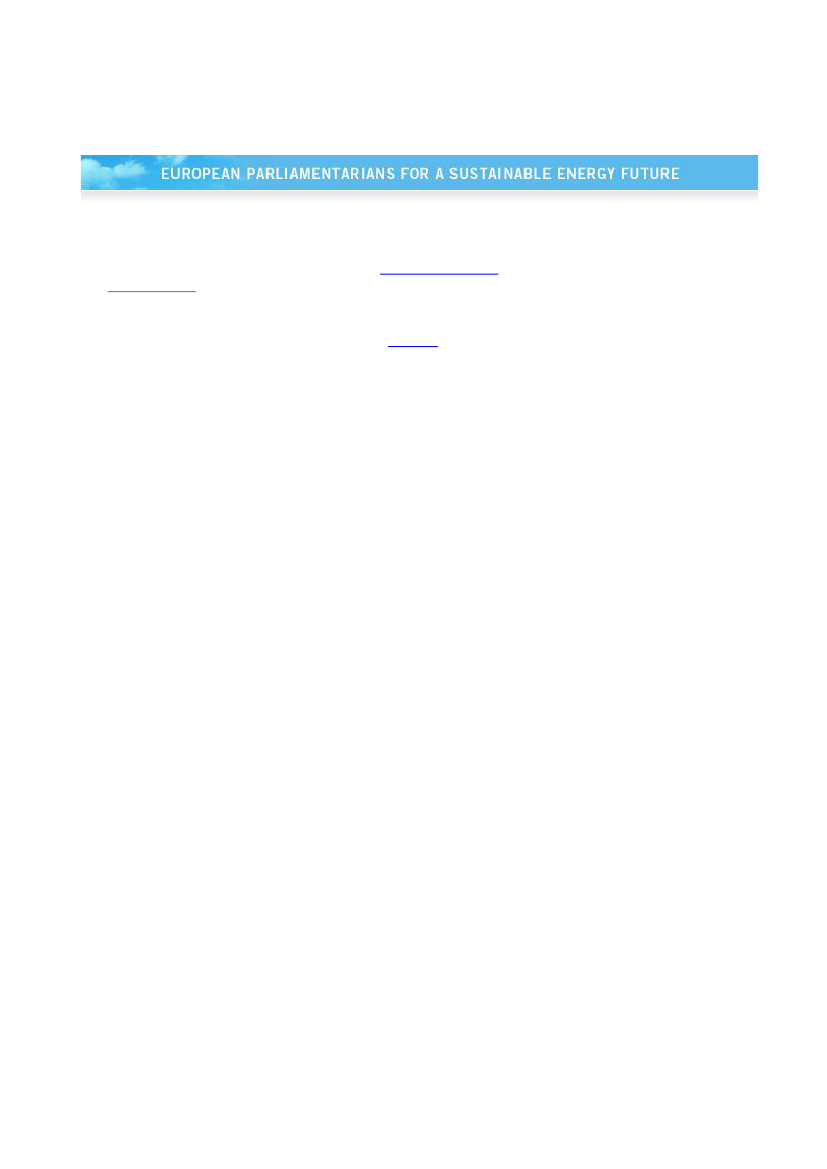Klima-, Energi- og Bygningsudvalget 2012-13
KEB Alm.del Bilag 297
Offentligt
Press releaseBrussels, 27 August 2013Dr. Jan GeissSecretary GeneralEUFORESCo-ordinatorEnergy-Efficiency-Watch
An effective implementation of energyefficiency measures requires moreharmonisation and integrationA report "Improving and Implementing National Energy Efficiency Strategies in theEU Framework" has now been published by the Energy-Efficiency-Watch project.The report comprises results of policy screening of all 27 National Energy EfficiencyAction Plans (NEEAPs) and a survey with national experts assessing the level ofambition and the state of implementation of national energy efficiency policies. Thisreport summarises findings from both analyses and draws conclusions for the furtherimprovement of energy efficiency policies. It also includes 27 country reports whichpresent findings per Member State.
Integrated and effective policy packages neededBased on a set of assessment criteria, Wuppertal Institute and Ecofys screened theNEEAPs of all EU Member States. They especially focused on an effectivegovernance framework, comprehensive sectoral policy packages, good practices,policy gaps and key barriers.Ralf Schüle(Wuppertal Institute) explained that"despite considerable progress made in the buildings sector and energy-efficiencypublic procurement, measures addressing different sectors are often not well alignedwith each other or lack a clear design in terms of their implementation at the MemberState level. An effective implementation of the measures introduced by EU Directivesrequires a higher degree of harmonisation and integration."Stefan Thomas(Wuppertal Institute) continued: "Crucial steps towards an integrated and effectivepolicy package are the establishment of institutions and infrastructures that promoteenergy efficiency, such as energy or climate protection agencies, t he establishmentof energy efficiency obligations and/or energy efficiency trusts or funds and thecreation of favourable framework conditions for energy services." According to him,
these elements provide the administrative infrastructure and the funding frameworkfor most of the sector-specific policies and measures that are needed to addressbarriers to energy efficiency and stimulate energy efficiency markets.
Surveying the ambition and the status ofimplementation in EU27The survey on the level of ambition and the status of implementation of energyefficiency policies in EU Member States was conducted between March 2011 andSeptember 2012. 655 questionnaires collected and around 80 interviews done withexperts showed an enormous disparity among Member States in the levels ofambition of their energy efficiency policies. "In some Member States, it is therecognition of the economic, social, political and environmental benefits of energyefficiency that drive ambitious legislation and funding programmes. However, thereare other Member States that just do the bare minimum required by the EuropeanDirectices," commentedChristiane Eggerfrom the O.Ö. Energiesparverband whowas the project leader of the survey. A large number of experts stressed the crucialrole of EU legislation in driving national energy efficiency policies.
Reality reflecting findingsUnique reports assessing the quality of established governance frameworks, theconsistency of sectoral policy packages and the status of implementation of nationalenergy efficiency policies are all available. In addition to this, a brochure presentinggood practice examples from various sectors is available in all 21 languages of theEU. "The aim of Energy Efficiency Watch was to build up knowledge via interviewswith national experts and policy screening and reflect the current situation in policyimplementation in all 27 EU Member States. The policy analysis done in the NEEAPsscreening and survey processing showed a big difference between what the policypapers say and what the reality in EU Member States is," addedJan Geiss,EUFORES Secretary General and coordinator of the Energy-Efficiency-Watchproject.Background informationThe NEEAPs screening and the survey were carried out within the framework of theEnergy-Efficiency-Watch project which aims to facilitate the implementation of theEnergy Services Directive. The project is coordinated by EUFORES and cofunded bythe Intelligent Energy Europe programme.To download the full report, see the Energy-Efficiency-Watch web sitehttp://www.energy-efficiency-watch.org/
The sole responsibility for the content of this document lies with the authors. It does notnecessarily reflect the opinion of the European Union. Neither the EACI nor the EuropeanCommission are responsible for any use that may be made of the information contained therein.
EUFORES Secretariat Brussels:Dr. Jan Geiss, Renewable Energy House | Rue d’Arlon 63-65 | B-1040 Brussels, BelgiumCompany/ VAT Number: BE 0807.928.341Tel.: +32(2)5461948 | Fax: +32(2)5461934 | E-mail:[email protected]www.eufores.org
If you don't want to receive mailings from EUFORES,click hereto unsubscribe.



